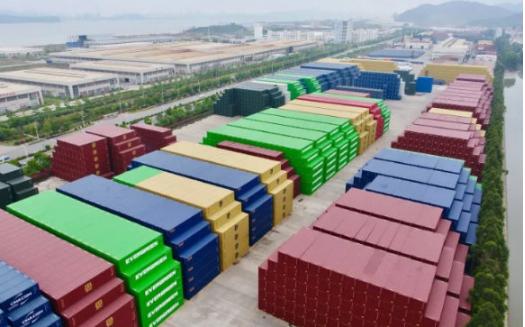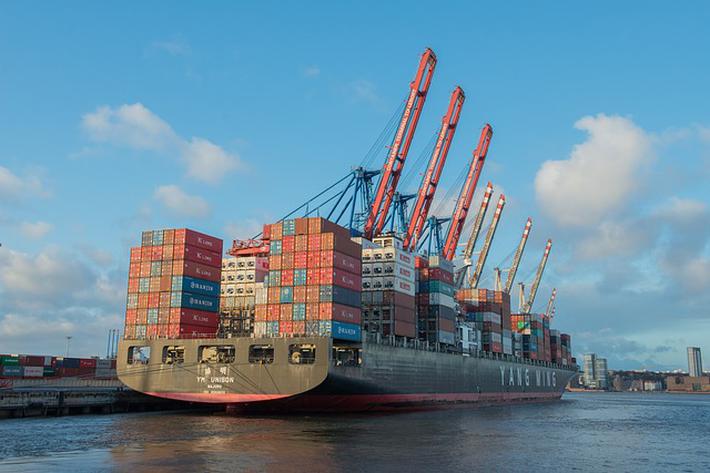What is the reason for the rise in the price of coffee retail products in the United States? The Future Development trend of American Coffee Market
As the largest beverage consumer in the world, the United States has recently had to choose air transportation because of rising shipping prices and the shortage of some containers, resulting in a significant increase in the operating costs of coffee processors. It is possible that the price of retail coffee products will rise in the short term.

According to the Coffee Finance Network, medium and small roasters in the United States, especially boutique coffee companies, are the most affected, worried about rising transportation costs. Because
Coffee companies either have to bear the corresponding transportation costs or reduce losses by raising the retail price of coffee.
In response, Oliver Storm Shawk, CEO of the coffee roasting company in Olympia, Washington, said: "We currently have delivery contracts in the summer and autumn, and these prices have gone up a lot, by about 15%." We are now trying to decide whether we should bear the cost or adjust the price and increase the retail price. "
"it is now more expensive to bring coffee to consumers than in the past five to ten years." Because as more and more consumers shop online and adopt additional security procedures during COVID-19, there is a growing demand for transportation services, which increases costs in the United States.
Another reason is the lack of containers. During the COVID-19 outbreak, supply in the coffee industry was limited, but not because of production problems, but because of a shortage of containers. On coffee transport routes, the demand for containers is increasing, while the demand for other routes is less, resulting in uneven flow and increased transport costs.

Carlos Mera, an analyst at Rabobank, said: "Container costs are the main problem in the coffee market. The price of routes from Southeast Asia to Europe and the United States has risen due to a shortage of containers. Even if you are willing to pay, you may not find a vacant room. "
In addition, there has been a delay in receiving coffee from Africa and some South American countries and regions. Lee Harrison, a senior executive at Joe Coffee in New York, said that a shipment of coffee from Burundi originally scheduled to arrive at the beginning of this year had been postponed to March.
The shortage of containers not only affects the coffee market, but also brings the same problem to the transportation of other industries, such as the United States, Japan and other countries. Shipping is likely to increase corporate costs on inbound routes in the US by nearly $10 billion, or 100 per cent, by the fourth quarter of 2020, according to market intelligence provider Sipp Global Platts.
There are also many Japanese companies whose import costs have more than doubled. For example, Japanese home appliance manufacturers have to respond by booking container ships a few weeks in advance or adjusting transportation routes.

Contrary to foreign countries, China's container enterprises ushered in new opportunities. Orders from container factories have been increasing since they resumed work in March last year, especially in the fourth quarter, according to CCTV Finance. China's epidemic situation has been effectively controlled, the strong demand for overseas orders, coupled with the port of a large number of empty containers stranded overseas, all these have created unprecedented profits in the container industry.
So will American boutique coffee companies affect coffee supply because of a shortage of containers? Eric Lauterbach, president and chief operating officer of Peet's, said: "We are not worried about supply because our inventory is good."
* Image source: Internet
Important Notice :
前街咖啡 FrontStreet Coffee has moved to new addredd:
FrontStreet Coffee Address: 315,Donghua East Road,GuangZhou
Tel:020 38364473
- Prev

Latest news from Guagua coffee producing area 2021 Nicaragua coffee production is 40% lower than that in the same period.
Professional coffee knowledge exchange more coffee bean information please follow the coffee workshop (Wechat official account cafe_style) two natural disasters in Central America in 2012-2020, which made the already weak Nicaraguan coffee industry even worse. Since the second natural disaster, there has been a situation of zero income for farmers. Where should they go in the future? 2012-2020
- Next

Italian coffee brand illy accelerates overseas expansion
Affected by the epidemic, the food and beverage industry in various countries has been hit hard, such as the Italian coffee brand illy, which already pays dividends in the catering industry, so illy has set its sights on the United States, the largest consumer of coffee. It is against this background that the illy Coffee Group officially announced the completion of 200 million euros of equity transfer financing some time ago, and the investor is Rhone from New York.
Related
- Can lightly roasted coffee beans be used to extract espresso? How finely should you grind high-quality coffee beans to make Italian latte?
- What is the difference between the world's top rose summer coffee and Yejia Shefi? What are the flavor characteristics of Yega Shefi coffee and Panama rose summer?
- The ceremony is full! Starbucks starts to cut the ribbon at a complimentary coffee station?!
- A whole Michelin meal?! Lucky launches the new "Small Butter Apple Crispy Latte"
- Three tips for adjusting espresso on rainy days! Quickly find the right water temperature, powder, and grinding ratio for espresso!
- How much hot water does it take to brew hanging ear coffee? How does it taste best? Can hot water from the water dispenser be used to make ear drip coffee?
- What grade does Jamaica Blue Mountain No. 1 coffee belong to and how to drink it better? What is the highest grade of Blue Mountain coffee for coffee aristocrats?
- What are the flavor characteristics of the world-famous coffee Blue Mountain No. 1 Golden Mantelin? What are the characteristics of deep-roasted bitter coffee?
- Can I make coffee a second time in an Italian hand-brewed mocha pot? Why can't coffee be brewed several times like tea leaves?
- Hand-brewed coffee flows with a knife and a tornado. How to brew it? What is the proportion of grinding water and water temperature divided into?

